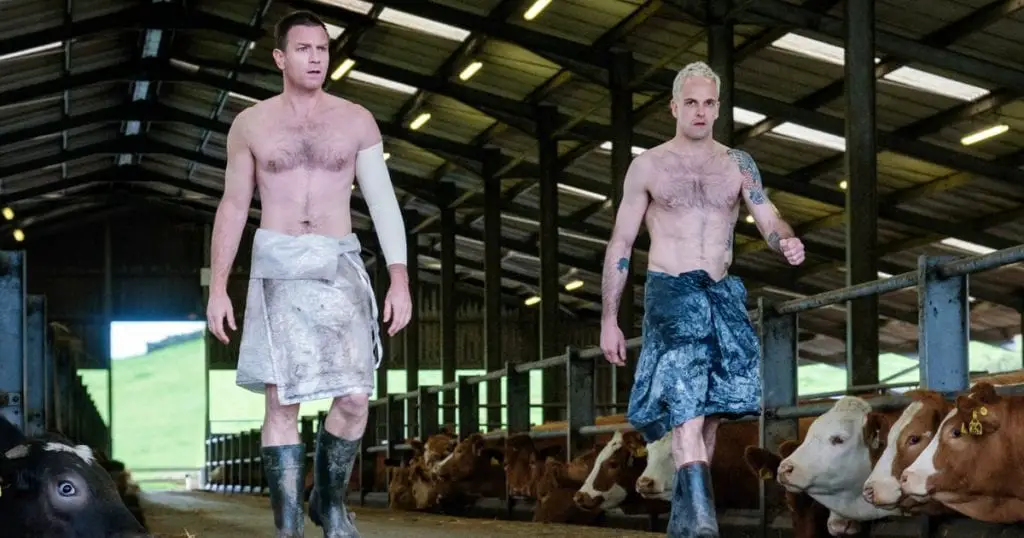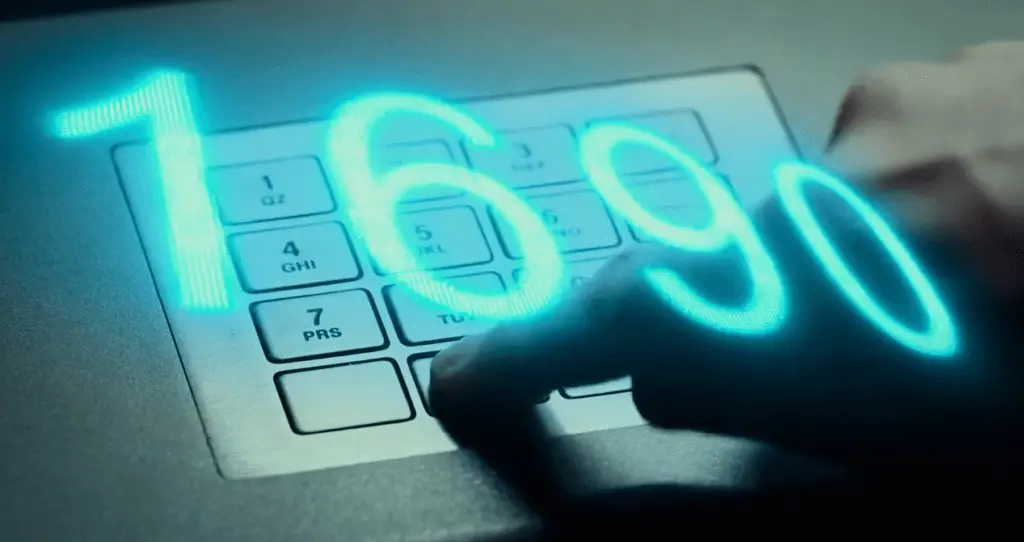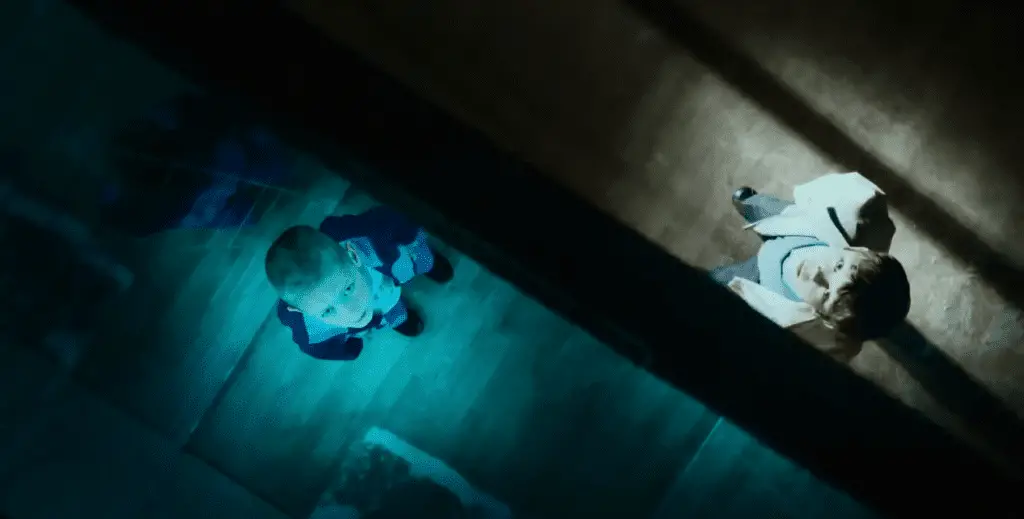Trigger warnings for mentions of drug use, alcoholism, underage sex, homophobia, transphobia, and infant death, as depicted in the films. Spoilers for Trainspotting and T2 Trainspotting.
You might have noticed that on the Fandomentals, we’re not fond of “edgy”, “mature” GrimDark storytelling. In my case, I pinned down something that really bothers me about the how GrimDark™ storytelling aesthetic works recently thanks to the Trainspotting movies. Despite the heavy subject matter, I laugh every time I watch them, and their moments of levity and dark themes do not conflict with each other. If anything, they’re a shining example of how such things complement each other when it comes to telling an effective story.
The original movie features a wide array of drug usage, most prominently intravenous heroin use but also speed, cocaine, hash, and good ol’ Scottish alcoholism. It contains some pretty graphic violence, including at least two people getting horrifically glassed, with bright red blood and gore all over the shop in those scenes. It features a scene called “The Worst Toilet In Scotland” where Ewan McGregor goes swimming in the titular bog, which is indeed one of the most disgusting things you will ever see, all to retrieve some heroin suppositories that he accidentally shat out.
One character throws around homophobic slurs as readily as he throws around broken glass, and at one point has a severe freak-out upon realizing that the woman he’s been making out with is a trans woman (although thankfully, and unusually for the character, none of the violence is directed towards the trans woman). There’s a good deal of onscreen sex, including (this is a spoiler, but also a trigger so that takes precedence) underage sex. Kelly McDonald herself wasn’t underage, though she was only nineteen at the time of filming, but her character is revealed to be underage a couple of scenes later.
There is also (again, a big spoiler, but an even BIGGER trigger) the death of a baby halfway through the film, whose starved and neglected corpse we are treated to several lingering shots of. The dead baby also reappears in Renton’s hallucinations when he’s going cold turkey later in the film–it’s pretty obviously an animatronic doll, but that kinda just makes it worse really. Another character contracts HIV and dies later in the film.

And all of this is only a fraction of what goes on in the original novel, which goes much darker. To the tune of domestic abuse, miscarriage, rape, and murder.
The sequel, T2 (based on Irvine Welsh’s novel Porno) is another festival of dark matter, with yet more drug usage–heroin, speed and cocaine again, mostly, along with, of course, lots and lots of drinking–as well as plenty more bloody violence, and plenty more sex (no underage this time but there’s a noticeable upswing in the amount of pegging). There’s a scene where a character attempts to commit suicide with a plastic bag and vomits spectacularly when saved, while hallucinating himself falling off a building. Late in the movie, another character is quite graphically hanged with wire. There’s no dead babies this time, although the death of the baby in the first film is discussed, along with the death from AIDS. Neither corpse is shown this time, thankfully.

With all of that going on, you’d think these movies would be nothing but suffering from start to finish. So why do I still often bust a gut laughing when watching Trainspotting? How did I wind up with tears of laughter rolling down my face as often as tears of sadness when watching T2?
A big part of the pretension of GrimDark™ is that things are non-stop terrible because that’s more realistic, you guys. Nobody is ever happy and everything always goes wrong because grow up, children, the world is terrible and life sucks. But the problem with enforcing such a grim tone is that, frankly, it completely neuters any naturalistic character interaction. Without humor, it’s impossible for interpersonal relationships to feel genuine.
Heroin use isn’t funny. Neither is going to jail, getting glassed, dying of AIDS, or an infant dying of neglect, and the movie gets no mileage out of trying to make any of those things funny in a black comedy way. Renton complaining “the downside of sobriety was that I would have to mix with my friends again, this time in a state of full consciousness” in a tone of utter disdain while staring blankly at Sick Boy? That’s pretty funny. Spud’s fueled train wreck of a job interview is fucking hilarious.
Renton’s often wordless reactions to first Begbie and then Sick Boy squatting in his flat in London are really fucking funny. Two junkies walking into a nursing home, in broad daylight, and taking the television from a room full of pensioners, none of whom react in any way? That’s fucking hysterical (and it doesn’t get much more realistic than the fact that this is based on a story Irvine Welsh was told by a junkie when researching the original novel).

In T2, the events that lead to Renton and Sick Boy walking through the Highlands completely in the buff are dark, tense and serious. But that doesn’t stop them walking through the Highlands naked while arguing with each other about their life choices being both absurd and hilarious. Sick Boy and Begbie’s whole frantic conversation about killing Renton is, for a scene about two old friends conspiring to kill a third, really goddamn funny thanks to Sick Boy’s frantic lying, how thoroughly Begbie is buying Sick Boy’s lies, and Sick Boy’s random asides to snort more cocaine to deal with the stress.
The vast majority of the laughs in both movies are hard to pin down to a single quote because they’re all in the way the characters interact, tell each other stories, and banter. In T2, two characters banter even when one is trying to murder the other, because the characters have known each other for somewhere in the neighborhood of forty years. They know each other, even if they hate each other. Even in the first movie, the characters’ relationships are all a complicated mixture of love, hate, support, and disdain, as a result of them having already known each other for twenty years and grown up together. That duality only intensifies in the twenty-year timeskip to T2. Positive and negative feelings all wrapped up in a complicated mess.
“Begbie’s psycho, but… he’s a mate, so what can you do?” is funny, especially the casual way Tommy reaffirms his friendship with a man who he’s just described as nearly beating an innocent bystander to death–and it’s complex, naturalistic, and feels so real it hurts. I might never have known anyone as violent as Begbie, but I have had that exact complicated friendship dynamic growing up. And it was funny as often as it was nerve-wracking, because that’s how humans interact. We make jokes, we have injokes, we take the piss, especially in dark or frightening situations. And quite frankly, there needs to be funny to make the dark hurt. When things are too relentlessly grim, they just become…bland.

As GK Chesterton said, funny is not the opposite of serious. Nor is funny the opposite of dark. It’s not even the opposite of grim. Trying to separate them is simplistic and outright dangerous to realistic characterization. It flattens the emotions of the story, giving the viewer nothing to connect to, nothing to believe in. So if sucking the humor out of your grim, dark, Serious™ story isn’t contributing to its realism…what, exactly, is it contributing?

